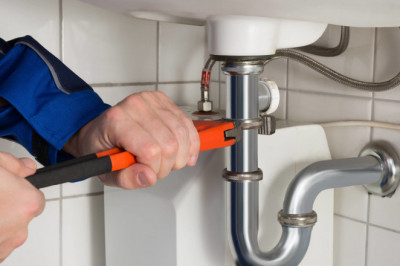views

The global electric VTOL (eVTOL) aircraft market is estimated to reach $700.5 million in 2032 from $27.5 million in 2023, at a growth rate of 38.2% during the forecast period 2023-2032. The growth in the global electric VTOL (eVTOL) aircraft market is expected to be driven by the increasing number of smart cities and growing need for sustainable transportation.
Read Report Overview: Electric VTOL Aircraft Market
Market Lifecycle Stage
Over the past few years, trends in the number of smart cities and the need for sustainable transportation are growing drastically worldwide to optimize city functions and drive economic growth. In addition, several governments worldwide have signed the Paris Agreement to reduce the carbon footprint in their respective countries, which drives sustainable air transport. However, traveling by road by the daily commuters in large cities is becoming very difficult due to increased traffic congestion, so the daily commuters are looking for efficient, sustainable, and safer modes of transportation to the workplace and other desired destinations. Moreover, several megacities have already reached their limit of expanding the road infrastructure due to the limited land space in their cities. This provides the opportunity for the growth of urban air mobility using electric VTOL (eVTOL) aircraft in smart cities and megacities.
In addition, advancement in the eVTOL aircraft offers various designs and improves efficiency by increasing the operating range and enabling autonomous technology. In addition, the eVTOL platform offers various applications, such as air taxi, private air vehicle, cargo transportation, and air ambulance, which largely paved the way for various growth opportunities for the defense and commercial sectors.
Impact
The global electric VTOL (eVTOL) aircraft market is observing rising investment across all the platforms, which drives the investments across the ecosystem, such as ground infrastructure and battery technology. The major challenge in operating eVTOL aircraft is the lack of battery technology. The batteries that are used currently are lithium-ion, lithium-sulfur, and lithium phosphate, which are insufficient to provide power for long-range. In addition, the energy density of the lithium battery is low for eVTOL aircraft. Moreover, the regulation for operating the eVTOL aircraft in urban areas and developing the vertiports is still in the development stages, which further delays the eVTOL aircraft from entering the market.
Demand - Drivers and Limitations
Following are the drivers for the global electric VTOL (eVTOL) aircraft market:
- Increasing Road Traffic Congestion in Urban Areas
- Rising Demand for Sustainable Air Transportation
Following are the challenges for the global electric VTOL (eVTOL) aircraft market:
- Lack of Ground Infrastructure
- Lack of Battery Technology
Following are the opportunities for the global electric VTOL (eVTOL) aircraft market:
- Opportunities for Air Taxi Services
- Opportunities for Ground Infrastructure Developers
Recent Developments in the Global Electric VTOL (eVTOL) Aircraft Market
- In July 2022, Lilium N.V. collaborated with Diehl Aviation to design and develop Lilium Jet’s cabin, and it acts as an integrator and manufacturer for interior components.
- In June 2022, Eve Holding, Inc. signed a letter of intent with Kenya airway's subsidiary, Fahari Aviation, to deliver 40 eVTOLs aircraft. As per the agreement, the companies jointly study through a working group to develop and scale up the UAM market and business model for people and cargo eVTOLs operations in Kenya. The project is expected to be delivered in 2026.
- In March 2022, Eve Holding, Inc. signed a strategic partnership with Acciona to develop a global and sustainable urban air mobility ecosystem. According to the partnership, Acciona would invest $30 million upon the consummation of Eve’s business combination with Zanite Acquisition Corp. and join the group of strategic investors that supports the development of Eve's business plan.
- In January 2022, Wisk Aero secured $450 million from The Boeing Company to further advance the development of Wisk’s sixth generation eVTOL aircraft. It also supports the company as it enters an intensive growth phase to prepare for the launch of scale manufacturing.
- In September 2021, Urban Aeronautics secured an investment of $10 million from unidentified private investors from the U.S., Brazil, and Israel. The investment would be used for further development and testing of the CityHawk eVTOL.
Get Free Sample: https://bisresearch.com/requestsample?id=1289&type=download
Analyst Perspective
According to Arunkumar Sampathkumar, Principal Analyst, BIS Research, "The urban air mobility domain is evolving at a rapid rate despite the regulatory frameworks lagging behind. While the criteria for operations and associated airspace management procedures are still in the making, end users such as law enforcement agencies and med-evac service providers are already gearing up to deploy their respective eVTOL capabilities. The chartered flight services segment is also focused on establishing niche regional transport services using eVTOL platforms. The manufacturing segment has multiple participants developing and serial producing a wide range of eVTOL platforms for diverse applications and use cases. While urban air mobility got the market started, the regional air transportation segment is likely to deploy these new platforms before UAM infrastructure is built. This is a unique market where the manufacturing and service segments have started investing even before the necessary regulatory frameworks come into play. The eagerness to disrupt and enable new modes of air mobility distinguishes the eVTOL market from the rest of the air transportation market.”












